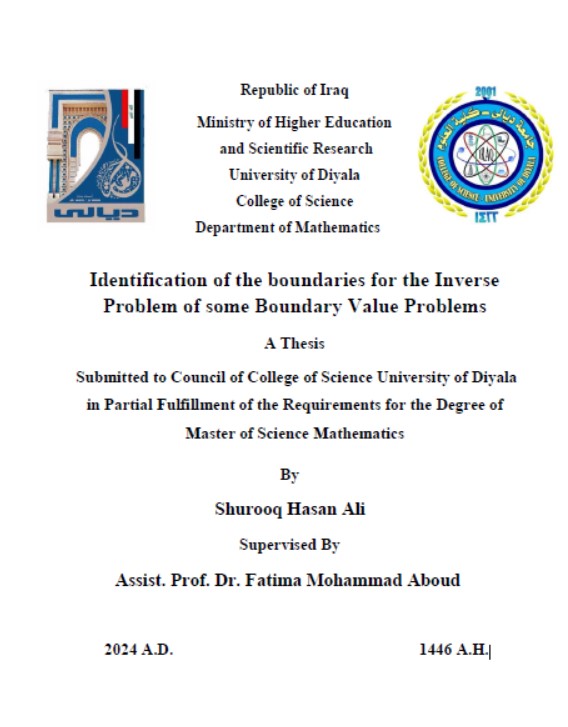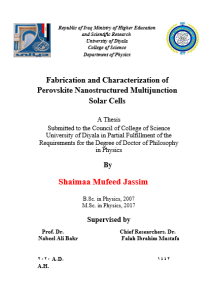Abstract
In this thesis, an inverse Cauchy problem for a heat transfer problem regulated by Helmholtz is considered in order to locate an unidentified flaw, denoted as , inside a simply linked and constrained region with provided Dirichlet data (temperature) on the boundary , and the Neumann data (heat flux) at the edge of the border .It is assumed that the temperature is gratifying the Helmholtz equation the administration of the condition heat transfer inside the fin.
To do the numerical computation, any programming software, such as Matlab, Scilab,…can be used. In this thesis, we adopt a matlab as a software program and use the following strategy to reach our goal; The suggested approach entails partitioning the problem into two distinct halves of sub-problem. Initially, The study will address a Cauchy problem using the Helmholtz equation in order to compute the temperature and then A non-linear scalar equation is used to calculate the coordinates of the points that define the boundary with the use of an iterative approach “ Newton’s technique”.
In this work, the exact boundary is approximated with great accuracy according to different boundaries (whether regular or irregular 𝜕𝐷). Certainly, when considering many boundary variations and various exact solution types (both polynomial and non-polynomial), achieving a near approximation of the boundary’s exact value becomes feasible with a geometry similar to the exact one. Because inverse problems are naturally unstable, an alternate option is to add noise into the Cauchy data, which will test the solution’s stability.





